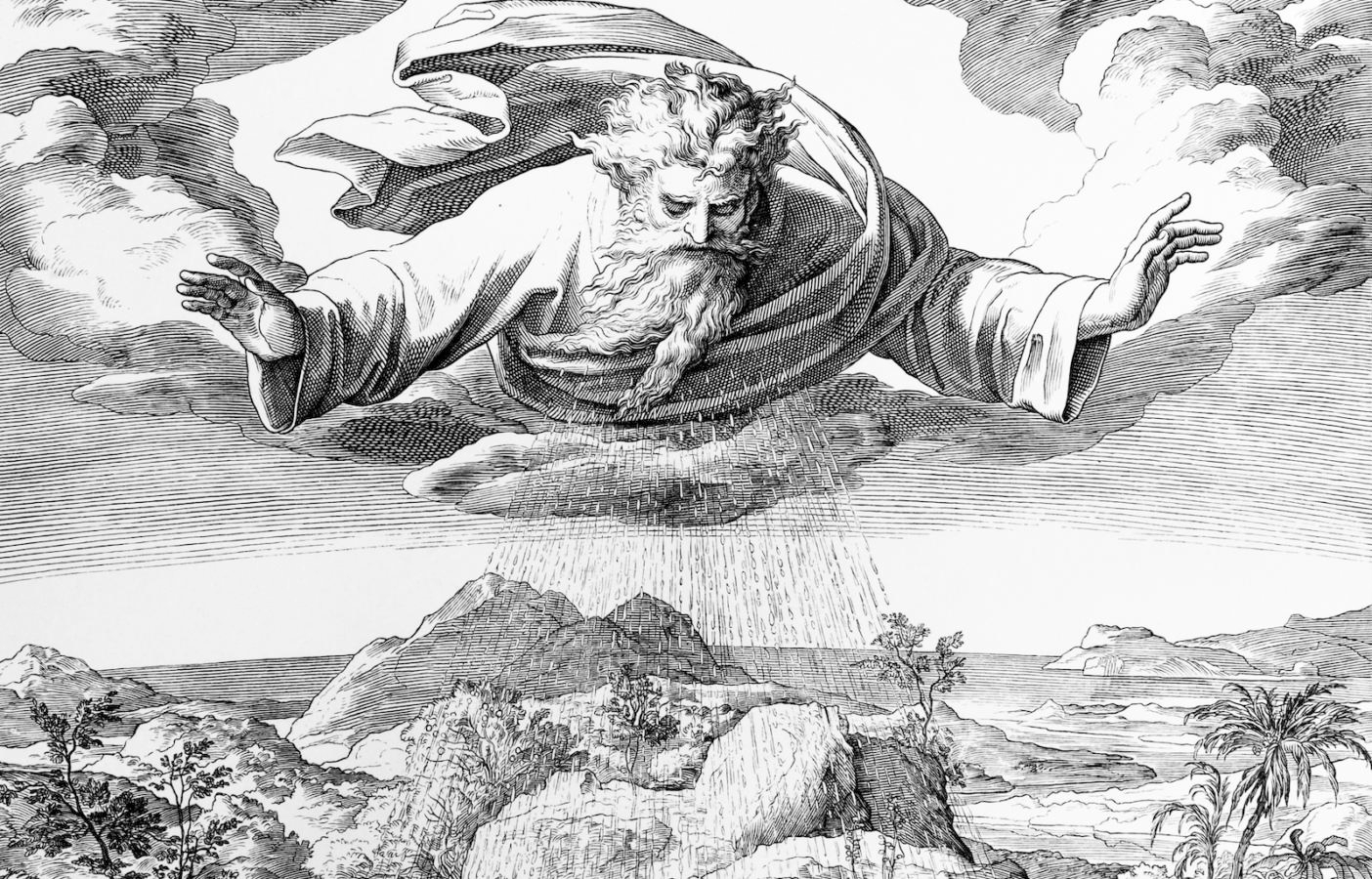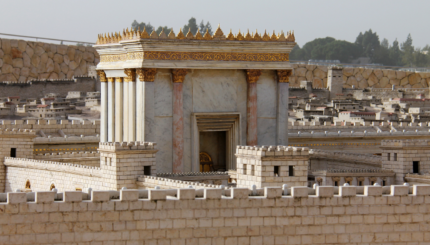Say you walk into a restaurant looking for something to satisfy your hunger. You pick up the menu and scan the sections: salads, soups, lunch, dinner. Sadly, you begin to realize that nothing looks particularly appetizing. The choices sound bland, unsatisfying, or just strange. Some of the menu is incomprehensible. Resigned, and maybe even a bit angry, you put the menu down and leave, convincing yourself you’re not so hungry after all.
This seems to be the experience of many people who walk into a synagogue. The spiritual hunger is there, but what is on the menu is unsatisfying at best, actively distasteful at worst. And one major factor is that the main ingredient in the prayer menu – God – isn’t something many folks have much taste for.
We could stay away from this particular restaurant and seek sustenance elsewhere. But to do so is to lose access to a rich, powerful tradition of spiritual practice. If the God ingredient is keeping us from having meaningful Jewish prayer lives, then perhaps it’s time to try and fix it.
In the West, there is a cluster of ideas that define what God is: big and awesome, holding ultimate power over us, a force for good. And even though Judaism, Christianity and Islam differ greatly on how explicit we can be about God’s human-like qualities, when we talk about God, we all tend to use similar human language to describe God’s actions and attributes: God knows, God loves, God judges, God gives and takes away life. Even if we vehemently don’t believe in God, the God we don’t believe in is an all-powerful, supposedly good person somewhere “up there.”
With your help, My Jewish Learning can provide endless opportunities for learning, connection and discovery.
The problem is, many of us just can’t believe in a God like that. We reject the notion of a God that controls the world, and us, like a puppet master. We can’t believe in Someone whom we’re told is both all-powerful and all-good, because when we look around the world, or at our own lives, it’s very clear that there’s a whole lot of not-good there. So either God is irrelevant, or not so good, or just not very plausible.
But what is vitally important to understand is that what we’ve been told is a description or definition of God is, in fact, a metaphor. Not a metaphor in the sense of a literary flourish or figure of speech, but a conceptual metaphor that actively shapes our lives.
Consider the metaphor TIME IS A LIMITED RESOURCE. In our culture, we say that we spend time, we live on borrowed time, we waste time and budget time. Of course, time is not actually a limited resource. This particular metaphor only came into being with the advent of the industrial revolution. But as anyone who has spent too many hours in a doctor’s office can attest, the experience of wasting time feels very real.
Cognitive linguists George Lakoff and Mark Johnson call TIME IS A LIMITED RESOURCE an example of a “metaphor we live by.” It is so fundamental to our experience that we don’t even realize it’s a metaphor. We use these types of metaphors all the time. Another is ANGER IS A HOT LIQUID IN A CONTAINER. We blow our top and get steamed up, without consciously thinking, “I am now describing a powerful experience with a metaphor.”
The way we usually think about God is also a “metaphor we live by.” But just as TIME IS A LIMITED RESOURCE is just one way of understanding and experiencing time, there are many ways of accessing the realm of the sacred. Jewish tradition is rich in metaphors for the universal human experience of Something that touches us in moments of wonder and connection, at times of great joy and deep sorrow. GOD IS A BIG POWERFUL PERSON is just one. There are many others.
One of the most common biblical metaphors for God is water. In Psalm 92 we read: “My soul thirsts for God.” And in Psalm 36: “You give us drink from the stream of your delight.” The prophet Isaiah describes God as that which will “satisfy your soul in drought … and you shall be like a watered garden.” The divine source of life is described elsewhere as both “The Fountain of Living Waters,” and as “The Well of Liberation.”
In these and similar verses, the verbs describing divine action are vastly different than those attributed to GOD IS A BIG POWERFUL PERSON. Water does not command or judge. It flows and irrigates, nourishes and sustains.
What does GOD IS WATER suggest for our spiritual practice? This metaphor invites us to identify when and how we become spiritually “dry,” and how we might irrigate our parched souls. It allows us to think of prayer as a way to access this “stream of delight.” We can reflect on the ways in which we are created b’tzelem Elohim — in the image of God — and how the life-giving waters that fill our bodies connect us to the source of life in all other living beings. When we encounter challenging decisions, we can ask for help in aligning our actions with the godly flow of the universe.
It takes a bit of work to dislodge the GOD IS A BIG POWERFUL PERSON metaphor from our consciousness and to make room for radically different ways of conceptualizing — and experiencing — the divine. Yet once we discover the variety of other metaphors available to us, the task becomes much easier. GOD IS WATER is just the beginning. Other biblical and rabbinic metaphors for God include Place, Voice, Fire, Cloud, and more.
Each of these brings with it new possibilities for spiritual and ethical practice and ways of understanding our place in the cosmos. With this new menu in hand, we need never go hungry again.
Rabbi Toba Spitzer is the senior rabbi at Congregation Dorshei Tzedek in Newton, Massachusetts. For examples of different metaphors for God and how they can be used in prayer, go to https://www.dorsheitzedek.org/divrei-torah/rabbi-toba-spitzer?post_id=358154.



